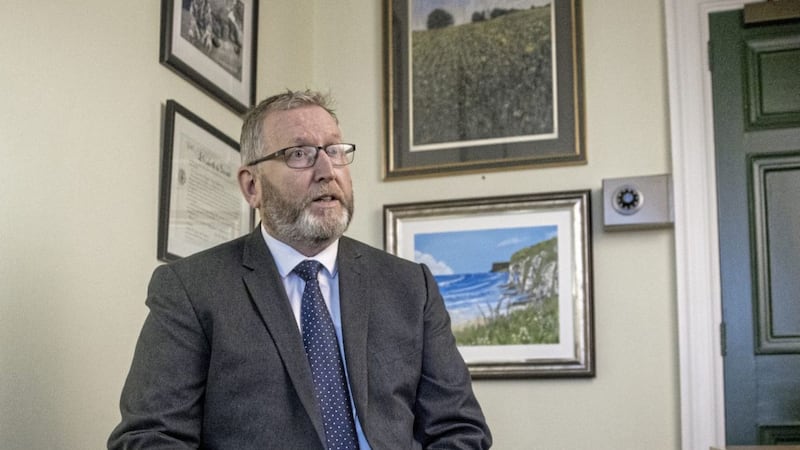It has been a long, long time since the UUP went into an election with its tail up.
Indeed, you have to go back to the assembly election in 1998 when, after the referendum result a few weeks earlier, there was an expectation that a grateful pro-union electorate would reward David Trimble for delivering peace and a new way of doing politics here.
It didn’t turn out that way. The UUP was behind the SDLP in terms of overall votes and, with 28 seats, didn’t represent an overall majority of unionist MLAs: meaning it was dependent on the support of the PUP’s two MLAs. By 2003 it had been eclipsed by the DUP and four years later was also behind Sinn Féin. By 2010 it had also lost all of the 10 Westminster seats it won in 1997 and, apart from a brief period between 2015-17, hasn’t regained any of them.
Along the way it has gone through six leaders, a series of reinventions (including the UCUNF project), raised and then dashed-again hopes, ‘Vote Mike, Get Colum’ and a downward spiral of assembly seats. Then along came Doug Beattie with his ‘bounce’, his rise in the popularity ratings and the prospect of the UUP actually winning seats from Alliance and the DUP.
For the first time since 1998 the party was relishing an election campaign. It was making news for the right reasons and looked set to benefit at the expense of the DUP’s Wagnerian meltdown last year and its continuing failure to get Boris Johnson to deliver on his so-called protocol promises. And, also for the first time in two decades, the UUP was able to trade punches with the DUP and not come off second best.
That is why Doug Beattie’s historical (although hysterical might be a better description for some of them) tweets have the potential to be electorally catastrophic. It can’t be taken as a given at this point that he will retain the leadership. Neither he nor the party has control over the story and the potential for more damage remains high. His MLAs and party officers rallied around him on Tuesday, but the body language in Stormont’s Great Hall on Tuesday afternoon suggested there was considerable anger with him.
Which is understandable, of course. The party’s best electoral opportunity in 24 years had just been dealt a shattering blow. Candidates were assessing how bad the damage could be on the doorsteps. Canvassers were probably wondering whether they wanted to spend weeks knocking doors. And the press office will know that a problem like this particular one has a very nasty habit of popping up over and over and over again.
Beattie will also know that the ‘Leader Interviews’ on almost every radio and TV political programme during the election campaign will come back to the same question: “Who is the real Doug Beattie.” David Trimble’s point about the past not preventing a political future tended to apply to people with backgrounds most of us were already aware of. In Beattie’s case the past has come as a real surprise to a lot of people: and crucially, to UUP members, representatives, voters and potential voters.
The great unknown in all of this is how forgiving and understanding voters and potential voters will be over the next few weeks. A lot will depend on whether or not the release of the historical tweets stops. It’s also likely—it’s already begun, in fact—that more attention will focus on the social media indiscretions of other political representatives, making Beattie’s stuff look like a common problem rather than a specific one.
Psychologically, though, Beattie is now a weaker leader. He has been damaged. That damage could be seen in his face and heard in his voice during a series of interviews he did on Tuesday. One can’t deny that it takes a degree of courage to submit yourself to that level of interrogation and his willingness to do so will have earned him some brownie points. Set against that, of course, is the reality that many people will argue that it was his own stupidity that brought all of this down on his head in the first place.
The UUP has been desperate for a leader who looked serious about taking the party onto new territory and providing a genuinely warm house for a key section of unionism. Someone not afraid to trade blows with electoral rivals. Until Saturday evening Doug Beattie looked like that leader: but a series of historical tweets, and a new tweet about Edwin Poots and his wife, have cast a long shadow over his reputation.
He doesn’t have much time to repair the damage and recover the reputation; yet failure to do so could, finally, finish off the UUP. That would be a pity.
He was incredibly stupid—which he clearly acknowledges—but increasing numbers of people were attracted by what he was offering. It would be a tragedy for that section of unionism if many of the views he has championed since he became leader fell by the wayside.








